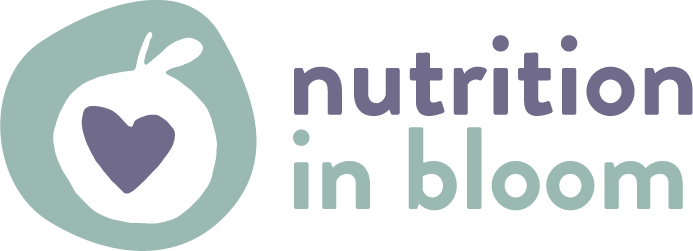Introducing Solids
At your baby’s four-month visit, your pediatrician may have talked to you about starting your baby on solid foods and probably recommended to start between 4-6 months. It’s usually recommended that baby can be stared on solids when they are sitting up mainly on their own, seem interested in food and open mouth when food is offered. As I pediatric dietitian I get asked many questions about infant nutrition and starting baby on solid foods. Here are just a few of the things to keep in mind when your baby is ready for real food:
At the beginning it’s still just for fun. Your baby will still be getting most of his nutrients from breast milk or formula, so your goal should be to help him learn these new behaviors. Eating should be a fun experience, and not stressful. If you begin feeding solid food and your baby has a hard time with it – she’s gagging or fussy - wait and try again. You will not do any damage by waiting a bit.
Consider some key nutrients and focus on variety. Key nutrients for babies and toddlers include vitamins A, C, and D, iron, total fat and omega-3 fats, and calcium. Each of these nutrients serves a specific purpose within the body; around 6 months of age, babies require these in other forms, above what is in breast milk or formula. Don’t be afraid to be creative with the foods you are offering to meet baby’s needs for these nutrients. Infant rice cereal may be what your grandmother recommends, and it’s no slouch – its high iron content is helpful. However, variety is important for teaching your little one to appreciate different food tastes and textures, so try purees of spinach, beans or lentils. To help baby intake additional omega 3 fatty acids, try adding chia seeds, ground flax or ground walnuts to purees.
Some foods should be avoided at the beginning. A few foods you will want to avoid until baby is 12 months include honey (because of the risk of botulism), cow’s milk (it contains too much protein), and small solids (small chunks of raw vegetables, grapes, sausages, whole nuts and seeds can all be choking hazards). Allergens are another consideration. Recommendations about the foods to avoid (in order to minimize risk from allergic reactions) have changed over the years. A 2008 review of research by the AAP concluded that the top 8 allergenic foods (cow’s milk, eggs, peanuts, tree nuts, fish, shellfish, soy and wheat) need not be avoided unless you have a family history of food allergies. In that case, it is best to speak with your pediatrician before proceeding.
Serving sizes are small. I hear a lot from parents that their baby is not eating enough. But how much is enough? A typical serving size when starting solids is 1-2 tablespoons of a puree or food - it’s a small amount. And you will want to start by offering one to two meals per day. Remember, baby will still be getting a good portion of her nutrition from milk or formula until age one. As baby gets older the serving size will increase, after 12 months the amount of food per meal should be around ¾ to 1 cup.
Division of Responsibility. Renowned feeding expert Ellyn Satter gives parents the helpful suggestion of division of responsibility. Parents are responsible for the “what, when, and where of feeding; children are responsible for the how much and whether of eating” (Satter). Do not force your child to eat more or stop eating if you feel they have had too much. Babies have the amazing ability to self regulate (many of us adults have long since lost this ability). Eating is a behavior that does need to be learned but does not need to be rewarded.
When feeding baby don’t forget about mom and dad. All too often I see mom and dad focused so much on baby’s health and wellness that the parents health and wellness falls by the way side. Remember to practice good nutrition for yourself, this will not only help you to feel better, but to set a good example for your child. Healthy and happy mom and dad lead toward a healthy and happy baby!
Want to learn more about starting baby on solids? Join me at the San Diego Breast Feeding Center on June 17th from 10-11:30 am for a class on introducing solids. More information can be found here
